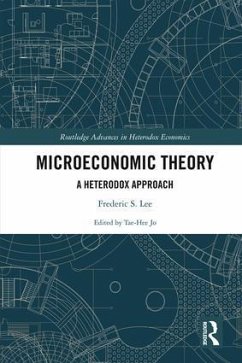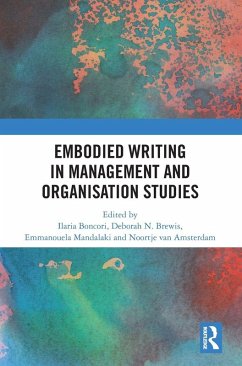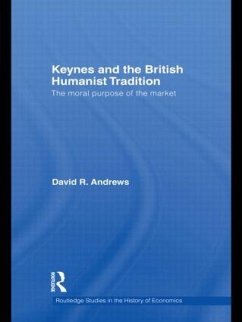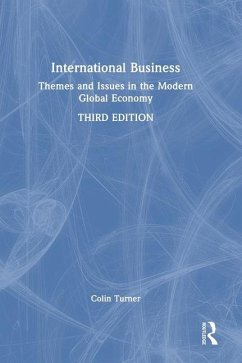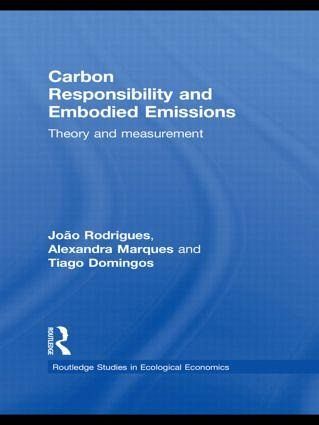
Carbon Responsibility and Embodied Emissions
Theory and Measurement
Versandkostenfrei!
Versandfertig in 1-2 Wochen
177,99 €
inkl. MwSt.
Weitere Ausgaben:

PAYBACK Punkte
89 °P sammeln!
This book investigates environmental indicators accounting for indirect emissions (as embodied in international trade) within the framework of input-output analysis and introduces an indicator of environmental responsibility derived from consumer and producer responsibility, i.e. upstream emissions embodied in final demand and downstream emissions embodied in primary inputs. A new estimation method for international inter-industry transactions is derived from the maximum entropy principle and is computed using a genetic optimization algorithm. This estimation method is then applied to databases on international trade and greenhouse gas emissions in order to report embodied emissions and emissions responsibilities for a global input-output model. The topic of indirect emissions and their accounting is still relatively unexplored in environmental economics and this groundbreaking new book will help to redress this balance.
Climate change policy and the reduction of greenhouse gas emissions are currently discussed at all scales, ranging from the Kyoto Protocol to the increasingly frequent advertisement of ''carbon neutrality'' in consumer products. However, the only policy option usually considered is the reduction of direct emissions. Another potential policy tool, currently neglected, is the reduction of indirect emissions, i.e., the emissions embodied in goods and services, or the payments thereof. This book addresses the accounting of indirect carbon emissions (as embodied in international trade) within the framework of input-output analysis and derives an indicator of environmental responsibility as the average of consumer and producer responsibility. A global multi-regional input-output model is built, using databases on international trade and greenhouse gas emissions, from which embodied carbon emissions and carbon responsibilities are obtained. Carbon Responsibility and Embodied Emissions consists of a theoretical part, concerning the choice of environmental indicators, and an applied part, reporting an environmental multi-regional input-output model. It will be of particular interest to postgraduate students and researchers in Ecological Economics, Environmental Input-Output Analysis, and Industrial Ecology.





